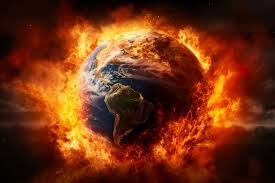"Climate Change Accelerates: New Data Reveals Alarming Trends"

Recent scientific data reveals that climate change is accelerating at an unprecedented rate, presenting urgent challenges for the planet’s ecosystems, economies, and human societies. Over the past few decades, a growing body of evidence has shown that the Earth’s climate is warming at an alarming pace, with significant consequences already visible across the globe. New data from climate scientists highlights that the impacts of global warming are not only intensifying but also occurring faster than previously predicted, making the need for immediate and decisive action more critical than ever.
One of the most striking trends is the rising global temperature. According to the latest reports from organizations like NASA and the Intergovernmental Panel on Climate Change (IPCC), the Earth’s average surface temperature has increased by approximately 1.2°C (2.2°F) since the late 19th century. This may not seem like a large shift, but even this small rise has already led to noticeable changes in weather patterns and ecosystems. In fact, 2020 tied with 2016 as the warmest year on record, and scientists warn that temperatures are on track to rise even further if significant efforts are not made to curb greenhouse gas emissions.
The accelerating warming is contributing to more frequent and severe extreme weather events. Heatwaves, droughts, wildfires, and hurricanes have become more intense and widespread, causing devastating impacts on communities and ecosystems. In 2020, wildfires in the western United States and Australia burned millions of acres of land, while hurricanes and typhoons caused widespread destruction in the Caribbean and Southeast Asia. These extreme events are becoming increasingly common, and their severity is compounded by the warming climate, which fuels the intensity and frequency of such disasters.
Another concerning trend is the rapid melting of polar ice and glaciers. Satellite data shows that both the Arctic and Antarctic regions are losing ice at a faster rate than ever before. The shrinking ice sheets contribute to rising sea levels, which threaten coastal communities around the world. This trend is particularly troubling because higher sea levels increase the risk of flooding in low-lying areas, endangering millions of people. Additionally, as Arctic ice melts, it exposes more of the Earth’s surface, which absorbs heat and further accelerates global warming in a feedback loop.
The warming climate also has profound effects on biodiversity. As temperatures rise, many species are struggling to adapt to changing habitats, leading to shifts in migration patterns, altered breeding seasons, and, in some cases, extinction. Coral reefs, which are vital marine ecosystems, are particularly vulnerable to warming oceans, experiencing widespread bleaching events that threaten their survival. The loss of biodiversity has significant consequences for human health, food security, and the stability of ecosystems that provide critical services, such as clean water and air.
In response to these alarming trends, governments, scientists, and environmental organizations are calling for immediate and substantial reductions in greenhouse gas emissions. Transitioning to renewable energy sources, improving energy efficiency, and protecting natural carbon sinks like forests and wetlands are key strategies to mitigate the worst effects of climate change. The window for action is narrowing, and failure to address the accelerating pace of climate change could result in irreversible damage to the planet and its inhabitants.